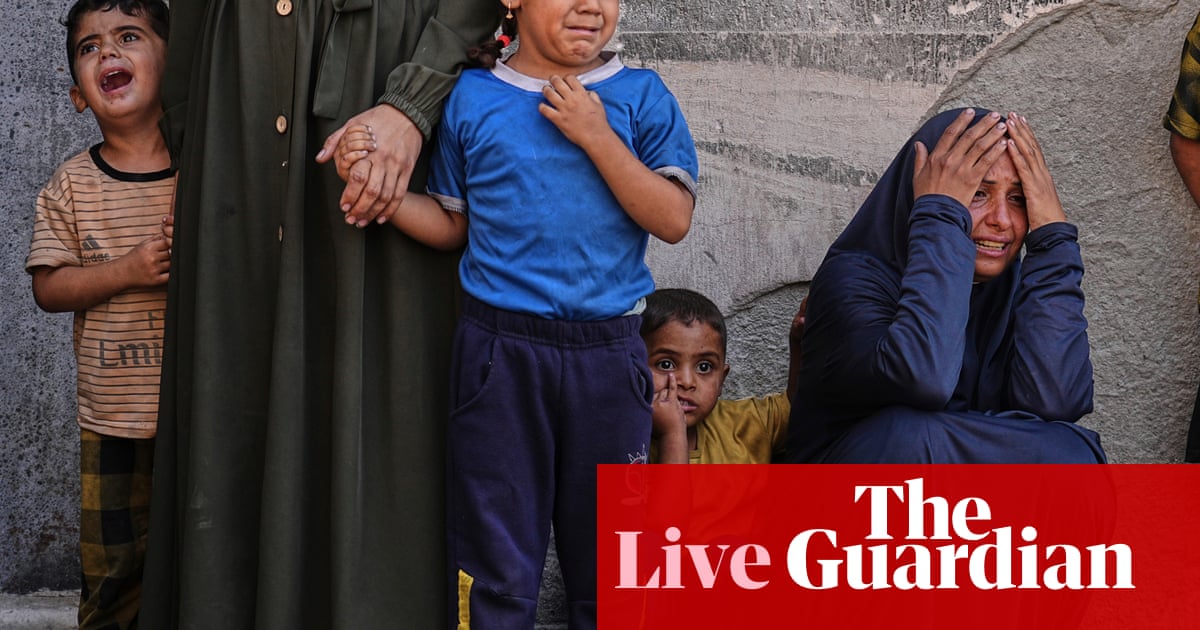Israeli Airstrikes in Gaza Result in Significant Casualties Amid Ceasefire Talks
Recent Israeli airstrikes in Gaza have killed at least 62 people, including children, as ceasefire discussions gain momentum amidst ongoing violence.
Overview
- Israeli airstrikes in Gaza have resulted in at least 62 fatalities, with health workers reporting the casualties overnight into Saturday.
- In Muwasi, near Khan Younis, airstrikes killed three children and their parents, highlighting the tragic impact on families.
- A strike in eastern Gaza City claimed 11 lives, with victims transported to Al-Ahli Hospital, amidst a backdrop of rising casualties.
- The ongoing conflict has led to over 56,000 Palestinian deaths, according to the Health Ministry, which does not distinguish between civilians and combatants.
- Calls for peace talks are intensifying as the death toll rises, raising concerns about the humanitarian situation in Gaza.
Report issue

Read both sides in 5 minutes each day
Analysis
Center-leaning sources frame the situation in Gaza with a focus on the human toll of Israeli strikes, emphasizing civilian casualties, including children. The language conveys urgency and tragedy, reflecting a critical perspective on military actions while hinting at the complexities of the conflict and the need for a ceasefire.
Articles (3)
Center (1)
FAQ
The ceasefire talks began with an agreement that took effect on January 19, 2025, involving multiple stages including hostages-and-prisoners exchanges and aims for ending the war, Israeli withdrawal from Gaza, and reconstruction. Negotiations on the next phase of the ceasefire started in early March 2025 in Cairo, focusing on ending the war, returning hostages, and troop withdrawals, though challenges remain due to Israeli refusal to withdraw from strategic areas and Hamas' insistence on retaining weapons.
Recent Israeli airstrikes in Gaza have resulted in at least 62 deaths, including children, with significant impacts on families such as the killing of three children and their parents in Muwasi. The Health Ministry reports a total of over 56,000 Palestinian deaths during the conflict, without distinguishing civilians from combatants, raising urgent humanitarian concerns in Gaza.
The ceasefire agreement includes three stages starting with a six-week ceasefire, release of Israeli hostages in exchange for Palestinian prisoners, ending the war, Israeli withdrawal from Gaza, and a reconstruction process lasting three to five years. Its goals are to halt violence, facilitate humanitarian aid, support stability, and eventually resolve the conflict through negotiations.
Challenges include Israel's refusal to withdraw from strategic corridors in Gaza, Hamas' insistence on retaining weapons and refusal to disarm, and differing war objectives, especially Israeli Prime Minister Netanyahu's goal of dismantling Hamas' military capabilities. These issues complicate progress toward a lasting peace and comprehensive ceasefire.
Mediators from the United States, Egypt, and Qatar have played key roles in drafting and supporting the ceasefire proposal. They are actively involved in negotiations in Cairo and discussions to enhance humanitarian aid delivery to Gaza, aiming to alleviate suffering and support regional stability.
History
- This story does not have any previous versions.


